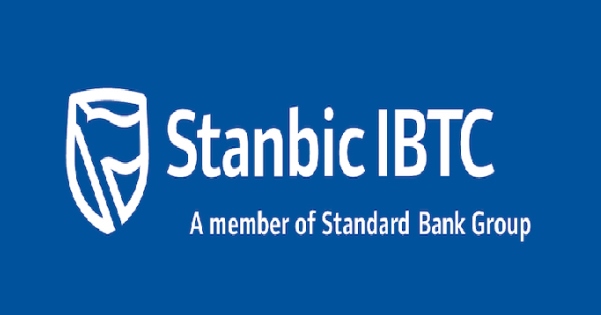E-Financial
Stanbic IBTC Set to Float 2nd Tranche of N100bn Infrastructure Fund

Stanbic IBTC Asset Management is set to launch the second tranche of its N100 billion Infrastructure Fund to enable more qualified investors to take advantage of this opportunity after securing all the necessary regulatory approvals.

The company revealed this while announcing the final 2021 distribution of N2.00 per unit to unit-holders who invested in Tranche I of the Stanbic IBTC Infrastructure Fund.
The distribution, which was made in January 2022, is in addition to the interim distribution of N1.24 made in November 2021.
The Infrastructure Fund, designed to bridge the gap between the funding needs of promoters of viable infrastructure projects and long-term institutional investors, has distributed a total of N3.24 per unit to investors since completing regulatory approvals for its Tranche I launch on 30 September 2021.
Commenting, Dolu Olugbenjo, Chief Investment Officer, Stanbic IBTC Infrastructure Fund, said: “We are pleased to be playing a role in investing in projects that reduce our country’s existing infrastructure deficit while making positive contributions to the Nigerian macroeconomic landscape.”
E-Financial
NGX Clears Fidelity Bank MD of Insider Trading Allegations

Nigerian Exchange Group (NGX) has affirmed that the recent purchase of 18 million units of Fidelity Bank shares by its Managing Director/Chief Executive Officer, Dr. Nneka Onyeali-Ikpe, was conducted in full compliance with applicable regulations.

In a letter dated May 22, 2025, the regulator dismissed allegations of insider trading and the misuse of bank funds for the transaction stating “….Following the filing of the Bank’s 2025 Q1 UFS on 30 April 2025, the Directors and other insiders of the Bank became eligible to trade on the securities of the Bank after twenty-four (24) hours.
“Therefore, the share purchase transaction referenced by Sahara Reporters which occurred on 19 May 2025 was transacted during an open trading window and NGX RegCo is not aware of any other price sensitive information that the Bank is required to disclose which should hinder trades on the securities of the Bank by insiders.”
Fidelity Bank has subsequently issued a statement addressing the accusations, categorizing them as false, misleading, and maliciously intended to tarnish the reputation of both the bank and its MD/CEO, as well as to mislead the investment community and the general public.
Signed by the bank’s Divisional Head of Brand and Communications, Dr Meksley Nwagboh, the statement clarified that Fidelity Bank was compelled to respond to the erroneous article published on May 21, 2025.
“As a publicly quoted company regulated by the NGX and subject to the Listing Rules of the NGX and the Securities and Exchange Commission (SEC) regulations, we unequivocally confirm that neither the Bank nor its MD/CEO has ever engaged in insider trading.”
Dr Nwagboh further emphasized that the MD/CEO personally funded the share purchase and did not utilize bank funds or take a loan for the transaction. The statement reaffirmed that the transaction was conducted in strict adherence to the Listing Rules and insider trading regulations governing publicly traded companies.
E-Financial
CBN Introduces AML to Fight Financial Terrorism, Gives Banks Deadline

Central Bank of Nigeria (CBN) has directed all financial institutions to implement real-time transaction alert systems as part of enhanced anti-money laundering (AML) compliance.

The directive was conveyed in a letter dated May 20, 2025, with reference number BSD/DIR/CON/AML/018/033, and titled “Exposure of Draft Baseline Standards for Automated Anti-Money Laundering (AML) Solutions – Request for Comments.”
The letter, signed by Olubukola Akinwunmi, director of banking supervision, was addressed to all financial institutions and outlines the regulatory expectations for modern AML compliance.
The apex bank emphasised that the initiative is part of its broader commitment to safeguarding the integrity and stability of Nigeria’s financial system, especially in the face of rapid digital transformation and the rise of innovative financial products.
The draft standards, which are now open to feedback from stakeholders, are designed to promote operational efficiency and ensure compliance with Anti-Money Laundering, Combating the Financing of Terrorism, and Counter-Proliferation Financing (AML/CFT/CPF) regulations.
“This standard is informed by a comprehensive assessment of existing solutions within the industry and aligns with global best practices, including recommendations by the Financial Action Task Force (FATF),” the document stated.
According to the CBN, the draft baseline standards are developed with key objectives in mind.
These include strengthening the AML capabilities of financial institutions through advanced, technology-driven solutions; encouraging the adoption of emerging technologies for real-time detection and reporting of suspicious transactions; reducing the inefficiencies associated with manual compliance processes; and ensuring alignment with evolving regulatory expectations both locally and internationally.
The draft document is available for download on the official website of the Central Bank of Nigeria, and all stakeholders have been encouraged to review and provide feedback.
“We look forward to receiving your valuable feedback,” the letter noted, highlighting the collaborative approach to shaping the final version of the standards.
Among the critical requirements outlined in the draft are real-time alerts for transactions considered high risk.
These include cross-border transactions, excessive cash deposits, cryptocurrency-related dealings, and other activities flagged under existing AML regulations.
The document specifies that the time taken to review and act on such alerts must not exceed a predetermined timeline, reinforcing the need for swift response and decision-making.
The CBN mandates that financial institutions implement transaction monitoring systems capable of supporting multiple risk scenarios.
These systems should use configurable filtration rules and customer segmentation techniques to effectively detect suspicious behavior. Institutions are also required to conduct regular stress testing and system validation exercises to minimise false positives.
“Each institution must define a predetermined threshold for false positives and ensure that the rate remains below this threshold,” the document stated, underlining the importance of maintaining a balance between alert sensitivity and accuracy.
The draft also mandates that AML solutions incorporate artificial intelligence and machine learning (AI/ML) capabilities.
These technologies should support anomaly detection, behavioral pattern recognition, automated risk scoring, and adaptive learning based on insights from previously flagged alerts and their resolutions.
The aim is to ensure that the systems not only detect suspicious activity but also evolve over time to become more efficient and accurate.
Real-time access to Customer Due Diligence (CDD), Know Your Customer (KYC), and Know Your Customer’s Business (KYB) data is another essential feature prescribed in the draft standards.
Financial institutions are expected to automate customer onboarding processes with real-time identification and verification in line with existing AML/CFT/CPF regulations.
This includes integration with Bank Verification Number (BVN) and National Identification Number (NIN) databases to ensure instant verification.
Moreover, the draft outlines the need for comprehensive KYC and KYB functionalities.
These must include automated customer risk profiling, transaction behaviour analysis, historical data tracking, and the inclusion of various risk factors derived from money laundering, terrorist financing, and proliferation financing risk assessments and typologies.
The solutions must also enable continuous classification of customers into risk categories to facilitate more targeted and effective risk management.
The Central Bank’s move to expose the draft for industry-wide input reflects its intention to build a robust, technologically advanced AML compliance culture across Nigerian financial institutions.
It signals a significant step towards enhancing transparency, operational efficiency, and international alignment in Nigeria’s financial regulatory environment.
E-Financial
Peter Obi Denies Secret Meeting with Tinubu over Fidelity Bank

Peter Obi, presidential candidate of Labour Party for 2023 elections, has publicly dismissed recent allegations linking him to a secret meeting with President Bola Tinubu over a fabricated debt scandal involving Fidelity Bank, describing the claims as “baseless, malicious, and entirely false.”

Peter Obi and Bola Tinubu
In a statement posted on his official X handle on Thursday, Obi expressed deep concern over what he called a growing business of blackmail targeting his public image.
“It’s obvious that the biggest business for blackmailers now is talking about Peter Obi from every negative perspective,” he wrote, adding that even his “solemn spiritual trip to Rome” had been twisted into a “blackmail campaign.”
Obi addressed a viral claim suggesting he travelled to Rome for a private meeting with President Tinubu in connection with a purported ₦225 billion debt crisis involving Fidelity Bank.
He categorically denied the allegation, clarifying the nature of his brief interaction with the President.
“I have never sought an audience with, nor met, President Tinubu since he assumed office,” Obi stated.
“Except (for a) one-minute meeting at the arena of Saint Peter’s Basilica, Rome during the inauguration Mass of Pope Leo XIV, where I was seated behind, and had to respectfully greet him and other dignitaries present.”
According to Obi, he was in Rome on May 9 for the lying-in state of Pope Francis and departed for London immediately after the Mass before returning to Nigeria.
The former Anambra State governor also refuted renewed claims that he owns Fidelity Bank.
He acknowledged his previous role as Chairman and Director of the bank, but emphasised that he does not own it.
“Fidelity has over 500,000 shareholders, none of whom hold a majority stake,” Obi explained.
“What this blackmailer seeks is to harm these hardworking Nigerians and cause them needless distress.”
He described the individual behind the allegations as a “self-proclaimed blackmailer-in-chief” and criticised the ongoing efforts to tarnish his reputation for political or financial gain.
Obi offered a prayer for those responsible for spreading falsehoods against him: “May God grant you the virtues of gratitude and understanding to know that we came here with nothing and will go with nothing, (and) that they cannot profit from their evil ways.”

 E-Financial2 days ago
E-Financial2 days agoCBN Introduces AML to Fight Financial Terrorism, Gives Banks Deadline

 Telecom2 days ago
Telecom2 days agoCelebrating African Creativity: Made by Africa, Loved by the World’ Returns for Its Fifth Year

 E-Financial2 days ago
E-Financial2 days agoPeter Obi Denies Secret Meeting with Tinubu over Fidelity Bank

 Broadcasting2 days ago
Broadcasting2 days agoLuft Pay TV Launches in Lagos, Promises to Revolutionize Entertainment

 E-Business2 days ago
E-Business2 days agoINEC Sets Up AI Division to Strengthen Electoral System

 E-Financial2 days ago
E-Financial2 days agoFidelity Bank’s N10.5tr assets base reinforces stakeholders’ confidence -Insiders bid for more equity stakes

 General News2 days ago
General News2 days agoOver 250,000 Cyberattacks Disguised as Anime – Report

 E-Financial2 days ago
E-Financial2 days agoPremiumTrust Bank Reassures Customers of Continued Security after Cyberattack Foil

















